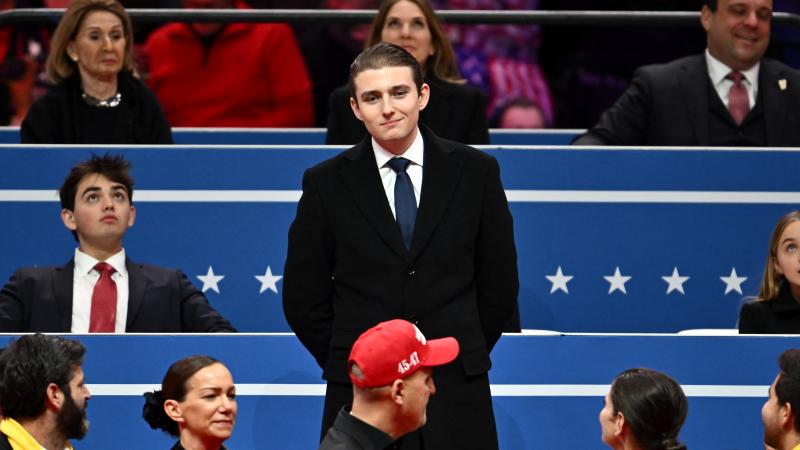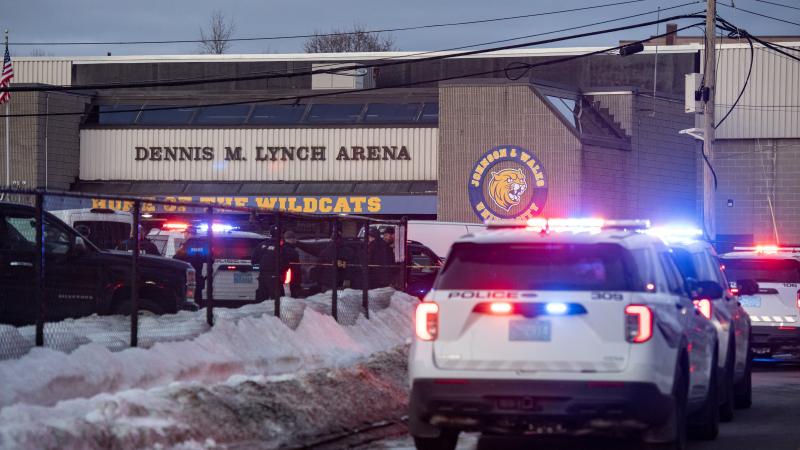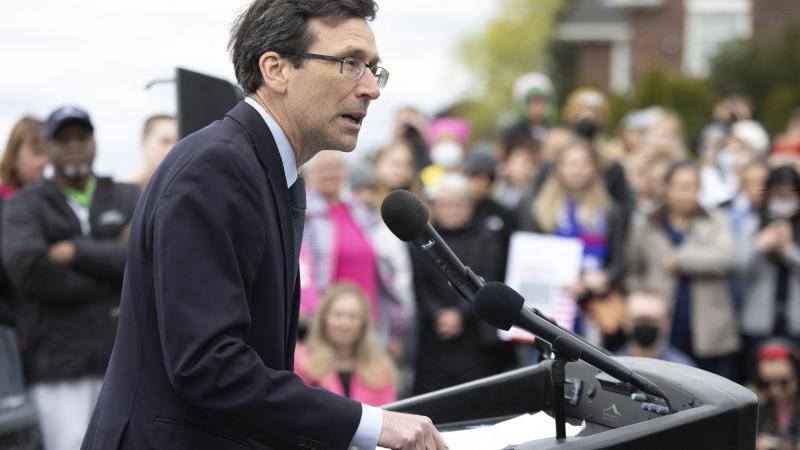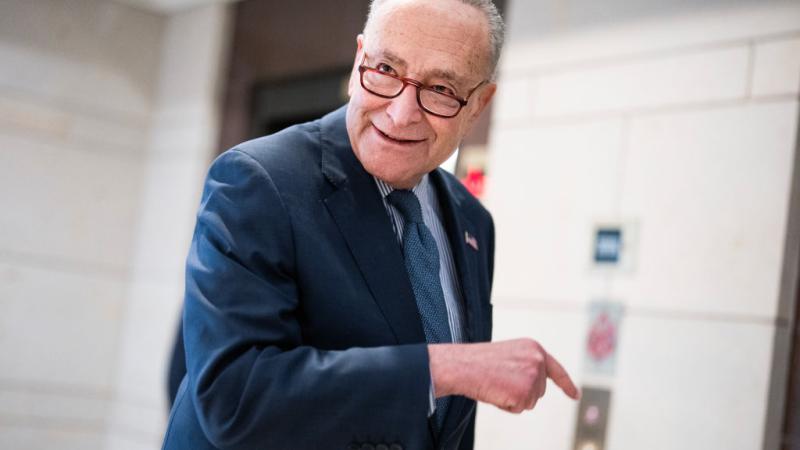Conservative lawmaker: Congress needs to address labor shortage to fight inflation
Rep. Warren Davidson said the impending rail strike has its roots in worker shortages.
A conservative lawmaker with a penchant for bipartisan legislation says the next Congress must take action to solve one of the driving forces of inflation: labor market shortages as the Baby Boomers retire and the Biden economy sidelines other workers.
Rep. Warren Davidson (R-Ohio) told the "Just the News, No Noise" television show this week that the threat of a national rail strike next month is the latest sign that a tight labor market is wreaking havoc on the economy.
He noted the railroad workers unions rejected the most recent contract offers over concerns about its workers being forced to work days off.
"The problem that the rail yards are having is similar to all these other companies, you can't get enough people," Davidson said. "So people, you know, they're getting a good pay raise. Their benefits are there. They're not upset about that. It's the time off. If you're told you got a day off, you want to know that you got the day off. And they're getting called back in because they've got a shortage of people."
Davidson said the macroeconomic issues like worker and supply chain shortages are key to solve long-term and that President Joe Biden failed to recognize them when he prematurely declared he had reached a deal to avert the rail strike earlier this fall, only to be upstaged by the union votes.
"It goes back to the Biden economy," he said. "You got so many people on the sidelines. There's fewer people working today than there were before. So I think if we fundamentally addressed those issues, we're optimistic that they can get to yes, and avert a shutdown. But yeah, you know, Joe Biden took a victory lap, and clearly the job wasn't done."
Davidson isn't the only conservative to question the Biden administration's grasp of economics. Longtime television journalist and author Bill O'Reilly said the lack of basic economic sense has put the nation on course for a recession.
"As far as Biden is concerned, this is a man who's never had any economic background," O'Reilly told Just the News. "I mean, I went through his legislative record. I could never see anything that he did to advance anything economics other than voting for more government spending, which really is where we are today. There are too many dollars now flying out of Washington with nowhere to go other than to people who spend them immediately, and that drives prices up.
"And then Biden inexplicably says, 'Well, I'm going to do a Green New Deal. So we're going to wipe out all our fossil fuel industry and not harvest as much American energy as we could. And so those prices go up in conjunction with the printing of trillions of dollars. So it's like, Okay, is there anybody in the White House that understands anything about macroeconomics? Apparently there isn't anyone there."
Former Obama Treasury Secretary Larry Summers has also questioned the Biden administration's approach, saying it has failed to see recent hiring trends as a threat to continued inflation.
"When you've got large numbers of vacancies, which we still do, when you've got such a labor shortage, which we still have, when you have wages going up rapidly in dollar terms, but not in purchasing power terms because prices are going up faster, you're getting more and more of a cycle," Summers said last month. "And that's making engineering the proverbial soft landing that much harder for the Fed."
Davidson, the Ohio Republican, hopes Democrats and Republicans can find more common ground in the new Congress that starts in January. Over the years, he has partnered with Democrats on issues ranging from better civil liberties protections on surveillance to improved privacy protections.
His latest bipartisan effort, a bill with Rep. Darren Soto (D-Fla.), seeks to strike a balance in federal regulation of emerging cryptocurrency markets, an issue that has gained urgency after the sudden collapse of the cryptocurrency firm FTX.
"The Securities and Exchange Commission and the Commodity Futures Trading Commission," Davidson explained, "have basically said, 'Well, we're not really sure what to do. Is this a security? Is it not?' Our bill would provide clarity for what is a security and what is not. If it's a security, the SEC has to take action.
"And you've got exchanges that are trading things that surely are securities and things that in most of our opinions, clearly are commodities. How that's done isn't clear in our laws, Congress should take action."















